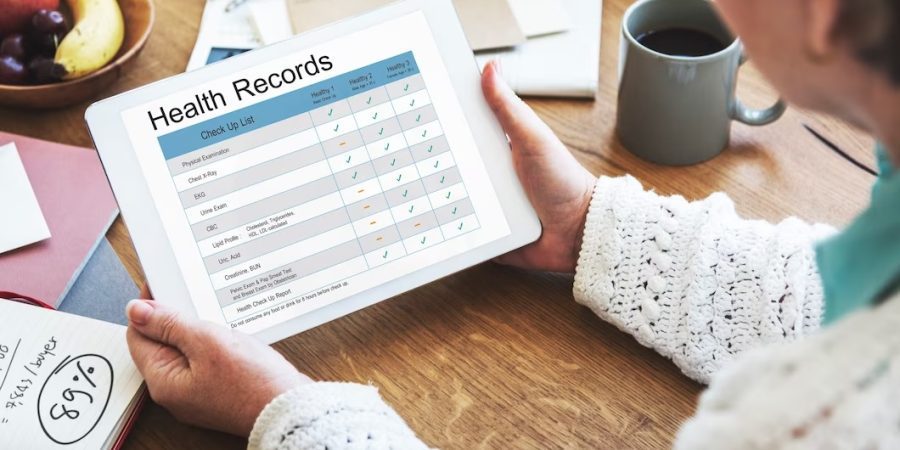Benefits of Implementing EHR Solutions in Mental Healthcare Practices
In today’s rapidly evolving healthcare landscape, technology plays a pivotal role in improving the efficiency and effectiveness of patient care. Electronic Health Records (EHRs) have transformed how healthcare providers manage patient information, streamlining workflows and enhancing healthcare delivery. EHRs are especially valuable in mental healthcare practices, offering a comprehensive solution for managing patient records, treatment plans, and communication. This article will explore seven key benefits of implementing an EHR in your mental health practice.
Streamlined and Centralized Documentation
One of the primary advantages of using an Electronic Health Record (EHR) in mental health practices is the ability to streamline and centralize documentation for mental healthcare practitioners. With a digital system, healthcare providers specializing in mental health can easily capture, store, and access patient information, including medical history, assessments, treatment plans, progress notes, and more. This eliminates the need for cumbersome paper-based records, reducing the risk of errors, loss, or misplacement. Centralized documentation also enables authorized personnel to access patient information remotely, facilitating collaboration among mental healthcare professionals and improving overall continuity of care.
Improved Efficiency and Productivity
EHR systems offer numerous features designed to enhance efficiency and productivity within mental healthcare practices. Automated appointment scheduling and reminders can help reduce no-show rates, optimize provider schedules, and improve overall patient satisfaction. Additionally, built-in clinical decision support tools specific to mental health can assist healthcare providers in making informed treatment decisions, reducing the time spent searching for relevant information or consulting external references. The ability to generate and transmit electronic prescriptions directly from the EHR further streamlines workflows and improves patient safety by minimizing the risk of medication errors.
Enhanced Communication and Collaboration
Effective communication and collaboration among healthcare providers are vital for providing comprehensive and coordinated mental healthcare. EHR systems facilitate secure messaging and real-time communication between providers, enabling them to share important updates, seek consultations, or discuss patient cases. This promotes seamless collaboration, allowing providers to work together to develop individualized treatment plans and monitor patient progress. Improved communication can also extend beyond the healthcare practice, as EHRs often integrate with external systems, such as laboratories or pharmacies, enabling seamless data exchange and enhancing overall care coordination.
Data-Driven Insights and Decision-Making
EHRs generate a wealth of valuable data that can be harnessed to derive meaningful insights and support evidence-based decision-making in mental healthcare. These systems can capture and analyze clinical data, treatment outcomes, and patient demographics, among other variables, specific to mental health conditions. By leveraging this information, mental healthcare providers can identify patterns, trends, and potential risk factors, enabling them to optimize treatment plans, improve patient outcomes, and prevent adverse events in the context of mental health. EHRs also support population health management by facilitating data-driven interventions and enabling providers to identify at-risk populations and design targeted prevention strategies for mental health conditions.

Enhanced Patient Engagement and Self-Management
Engaging patients in their own mental healthcare journey is crucial for promoting positive outcomes and long-term wellness. EHRs offer various patient engagement features, including secure patient portals, which empower patients to actively participate in their mental health treatment. Patients can access their mental health records, view assessment results, request appointments, and securely communicate with their mental healthcare providers through the portal. Moreover, many EHRs offer specific mental health patient education resources, allowing individuals to access information and self-management tools tailored to mental health conditions, enabling them to better understand their conditions and make informed decisions about their mental health.
Regulatory Compliance and Data Security
Maintaining compliance with regulations, such as the Health Insurance Portability and Accountability Act (HIPAA), is a top priority in mental healthcare. EHRs provide robust security measures and tools to safeguard patient data and ensure privacy and security regulations compliance in the context of mental health. These systems employ encryption, access controls, and audit trails to protect sensitive patient information from unauthorized access or breaches. Moreover, EHRs often offer features to assist with regulatory documentation, such as automated coding and billing specific to mental health services, ensuring accurate and compliant reimbursement processes.
Scalability and Interoperability
As your mental healthcare practice grow, the scalability and interoperability of your EHR systems become increasingly important. EHRs are designed to accommodate practices of all sizes, allowing for seamless expansion without compromising performance or data integrity in the context of mental health. Moreover, interoperability features enable integration with other healthcare systems, such as hospital networks or primary care providers, facilitating secure data exchange and promoting coordinated care specifically for mental health patients. Scalability and interoperability contribute to a future-proof solution that can adapt to evolving mental healthcare requirements and ensure seamless transitions between different care settings.
As mental health continues to be a critical focus area, adopting an EHR system with its robust features becomes an increasingly vital step for mental healthcare providers. DrCare247’s EHR systems empower mental healthcare providers to provide quality care and stay at the forefront of the evolving healthcare landscape.


